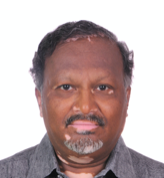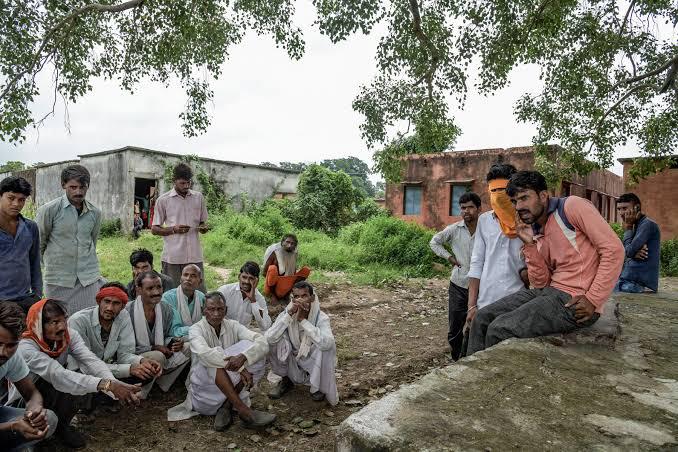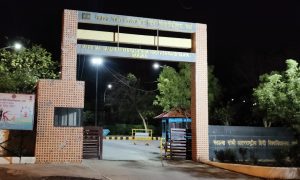In 1973 when I landed up in BHU to do my graduation in agriculture, ragging was in practice then and I was part of a fresher’s group that got ragged. Both English and Hindi were used by the seniors. When my turn came, they asked my name. I said, “Uday Shankar”. One of them shouted, “Poora naam bathaao” (Tell me your full name.). I again said, “Uday Shankar”. “Uday Shankar kyaa??”, came another voice. I got their point a bit late, and I then explained that in my state of Tamilnadu we stopped using caste suffixes long back. When I further explained that my father was just Ponnuswamy they could not take it anymore. One of them asked, “Hamey kaise pathaa chalegaa ki thum ‘kyaa’ ho?” (How would we come to know “what” you are?) For a moment I felt like standing in front of a group that was lost in time and felt sorry for the rest of my country. I then explained that two or three generations of families have not used caste suffixes in Tamilnadu and that I never knew the caste of my friends in my class while at school.
During my days at BHU I had many occasions to get glimpses of the deep-rooted feudal system in the north. Images are fresh in my mind of people oil-massaging policemen lying on charpoys in the porticos of their police stations, poor labourers squatting in front of the farmers providing them job and the height of poverty in the villages. I saw a regimented reverence and subjugation within the social fabric. After 28 years in 2004-05, I went to Uttar Pradesh, Bihar and Madhya Pradesh as part of a pan-India development work. I was shell shocked to see little change and felt like getting into a time machine.
The caste system of India might have been an ingenious part of the supply chain of local activities in traditional societies which had reasons endogenously relevant for those times. What might have initially been a mutually accepted conducive mode of livelihood, eventually became a rigid and exploitative system with the smart ones in the rungs of the caste system becoming smarter and pushing the rest to a level of irreversible gullibility and impoverishment. These unfortunate communities eventually became a prey to soul harvesters and their blatant conversions on which the smart communities, in their comfort zones, threw a Nelson’s Eye.
Two prominent reform movements, one in Kerala led by Shree Narayana Guru and the other one in Tamilnadu led by EV Ramaswamy Naicker (EVR) took place in south India. Depending upon the cultural situations prevalent in Kerala and Tamilnadu they both adopted their own strategies for reforms. Shree Narayana Guru adopted an inclusive approach wherein, he stayed within the Hindu framework and worked for the emancipation of a particular community that was believed to be much oppressed. In contrast, EVR was a political social reformer and for reasons best known to him he chose a tangentially and diametrically opposite method which was most often iconoclastic. Even if one chooses to set aside most of his approaches as idiosyncratic, there are at least three stellar reforms by him that have had a lasting effect on many of the gullible Tamils at that time where, he advocated them to throw away their gullibility through self-righteousness and removal of caste names as suffixes. The third one was EVR’s effort in joining a team in Kerala during the famous Vaikom Temple entry struggle. My point here is not to either denigrate or eulogize EVR but to focus on two of his reforms that are worth emulation across the country.
With that background in place, I am moving on to UP again. After decades of chequered history of rule by different parties, we now have Shri. Yogi Adityanath as the Chief Minister of UP whose assertiveness, altruism and astuteness is taking UP to newer heights. Backed by the stupendous interest of Shri. Narendra Modi in developing UP, the NamoYogi-duo has done their best to change UP. Adityanathji’s efforts are impacting the people of UP in all walks of their life. For instance, the announcement made in May 2020 to recruit 69,000 primary school teachers across UP talks volumes about the sort of education reforms that the Chief Minister has plans to bring in.
Adityanathji has started earning the goodwill of thousands of families across the state and it is time for the CM to make baby steps in social reforms too. He has the rare benefit of being a monk and an administrator. Along with his development and financial planning for the coming years he can also take up planning of a graduated form of social reform for the next ten years or more. One can easily understand how difficult it would be to bring about a social change in a society that has a feudalistic caste system embedded in the DNA of the social fabric.
Schools are the first places where one learns about the caste system when children are called by their caste names. Teachers may tend to become biased after getting to know the caste of the students from their suffixes. I know this because that was the way how my teachers in BHU used to call my classmates from UP, Bihar and MP so much so that I still remember some of the names of my classmates only by their caste names and cannot recollect their ‘names’.
As a first step in social reform, the UP Government can instruct all schools to stop mentioning caste suffixes along with “namikaran” names and instead use the initial of the father/mother of the child to differentiate between similar names. In Kerala most of the names come along with their house names as each family has a traditional house name, although a good number of them still have caste suffixes. In Tamilnadu names of persons mostly have father’s names as initials. The caste of the student should not be divulged at any cost to the teachers or the students. The parents may have to mention their caste only when their ward reaches the 10th standard for entry in the School Leaving Certificate.
When this reform is carried out across UP, it will send positive signals to other BJP ruled states to emulate this model. For instance, Karnataka in the south is one such state where caste names are added to names of persons. I had worked for two years in Kollur and I know pretty well how persons were immediately ‘identified’ by their names. This will eventually put pressure on non-BJP states to follow the model. As I mentioned earlier, such states should also have a parallel long-term plan to implement this social reform.
This reform is not to undermine the various facilities offered after schooling to students from economically weaker sections. On a similar note, any facility offered by the government or the school to students while in school should be a matter between the parents and the school administration and should never trickle down to the teachers and the classroom levels. For instance, having a function in the school to distribute free uniform or textbooks by inviting a VIP will erode the basic objectives of the reform.
I am sure Adityanathji is making an all-out effort to spruce up the school education system in UP and in the process, he would add on a lot of value-added education too, to instill a sense of self-righteousness among the students. If Adityanathji includes the two reforms in the education system in the coming year, UP will have its first set of over 30 lakh youngsters in 2032-33, who would hold their head high in self-esteem, being proud of the fact that they will belong to a new breed of people that would usher in a huge social reform in UP and maybe with a few more replications in other states too.

Despite all the efforts the caste system will remain embedded in the narrow corners of the DNA of citizens of India. These reforms are not being spelt out with a lofty idea of bringing in a casteless society. But it will surely make an indelible difference. The caste suffixes to names of persons will stop staring at your names and faces. By out casting caste at the school level now, you would have paved way for a self-righteous society in the years to come.
About the Author

P. Uday Shankar is a long-time rural development banker and a pioneering microfinance practitioner. With a penchant for exploring new realms, he is now an accredited Green Bank Specialist. Uday is based out of Coimbatore follow him on twitter – @udaygeeth






















 WhatsApp us
WhatsApp us
Pingback: has gay dating gotten easier
Pingback: health tests
Pingback: Medicijnen bestellen zonder recept bij Benu apotheek vervanger gevestigd in Zaanstad
Pingback: itsmasum.com
Pingback: dublin jobs
Pingback: copenhagen jobs
Pingback: atlanta job search